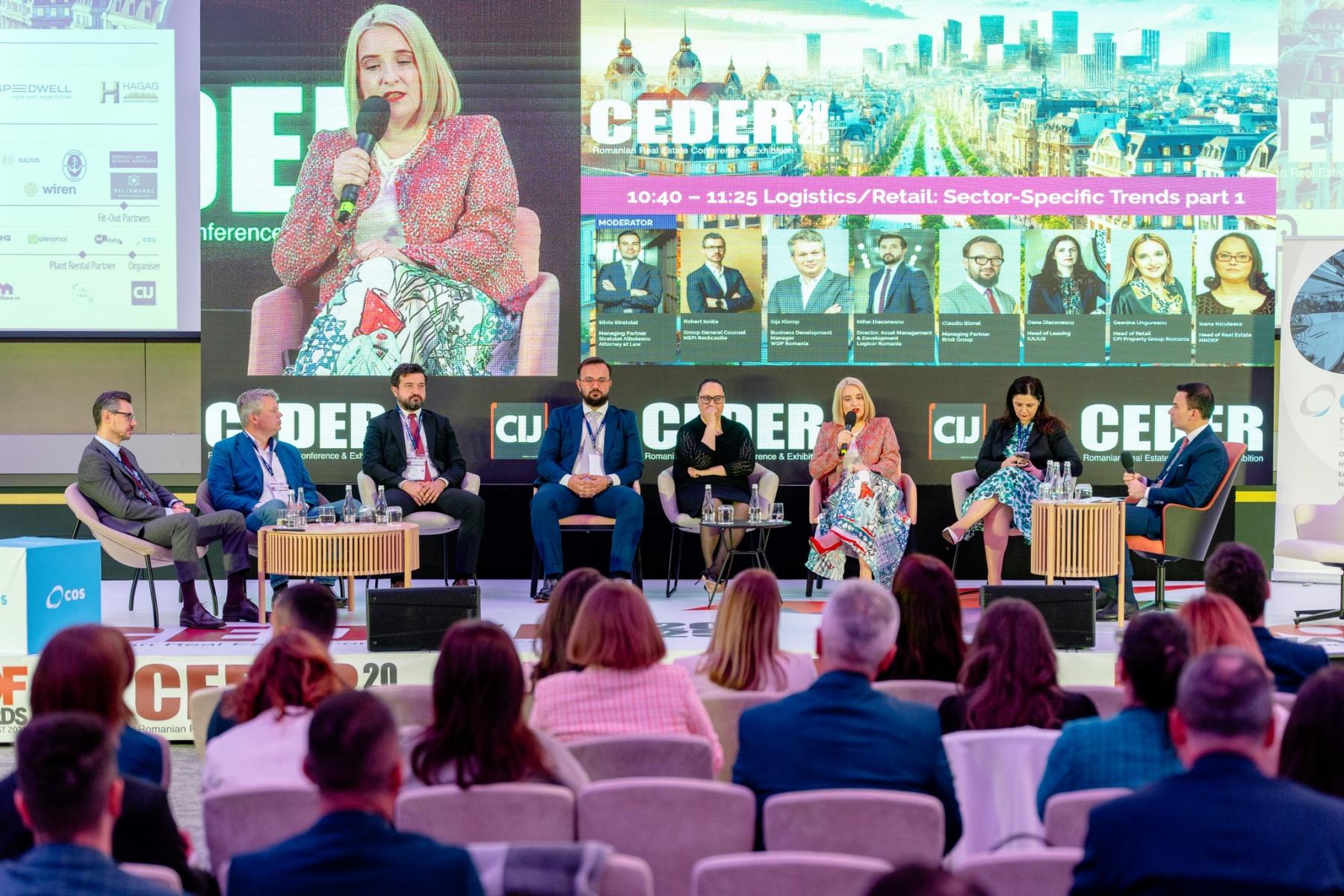2025-06-10
retail

The “Sector-Specific Trends, Part 1” panel held at CEDER 2025 showed that, despite navigating a complex landscape marked by rising costs, regulatory hurdles, and economic uncertainty, key players like NEPI Rockcastle and IULIUS are pursuing significant development projects, focusing on creating enhanced visitor experiences. Robert Ioniță, Group General Counsel for NEPI Rockcastle, highlighted the Promenada extension in Bucharest as a “pearl in the crown” of their efforts, representing a €300 million investment which “will generate 55,000 sqm GLA”. The project is a complex, mixed-use development aiming to redefine the urban retail experience. Robert Ioniță noted its impressive scale and engineering, including a seven-level underground structure, and an architecturally significant design. The project features an “innovative tenant mix, with many premieres”, integrating retail with office space, “a four-star international hotel, […] [a] high-capacity theatre and the most technologically advanced cinema in the country”. This strategy targets a diverse audience, from office professionals and business travellers to families and culture seekers, enabling them to attract “landmark projects, with the premiere concept” from tenants. NEPI also leverages its extensive portfolio to serve as a “gateway” for new brands entering the CEE market, having recently introduced brands like Lefties, Rituals, Wendy's, and Sports Direct to Romania for the first time. Robert Ioniță observed a trend where “food and dining continues to gain importance” and saw “more wellness than usual” integrated into their centres. At the same time, IULIUS, identified as “the biggest Romanian developer in Romania”, is focused on creating large-scale mixed-use developments in cities like Iași, Timișoara, and Cluj. Oana Diaconescu, Head of Leasing at IULIUS, pointed to a strong and even growing demand from tenants within their portfolio. She noted that both newcomers and “big anchors, big department stores” are “in need to extend their area”, requiring the developer to be “really creative in order to find room”. IULIUS's significant investment in the Rivus project in Cluj, budgeted at half a billion euro, underscores this, featuring Romania's biggest retail component, at over 145,000 sqm GLA, alongside other functions, with over 70% of the retail space already signed with “big names”. They are also extending Palas Iași in partnership with renowned architects Foster and Partners, aiming for 80,000 sqm GLA total and introducing new entertainment and edutainment features. While attracting luxury brands can be challenging due to the lack of competitive formats, IULIUS has successfully introduced some, like Furla and Boss. Oana Diaconescu explained that luxury brands consider several factors like “the level of the wages, […] the standard of living. Then, the knowledge, the awareness of the lifestyle and values that are appreciated in the West. Then the existence of a cluster of brands that would address the same public formats. You need, […] to have the proper aesthetic, to have the proper design, because all these ultimately contribute to the experience of shopping and in the end, to the performance of their sales.”

